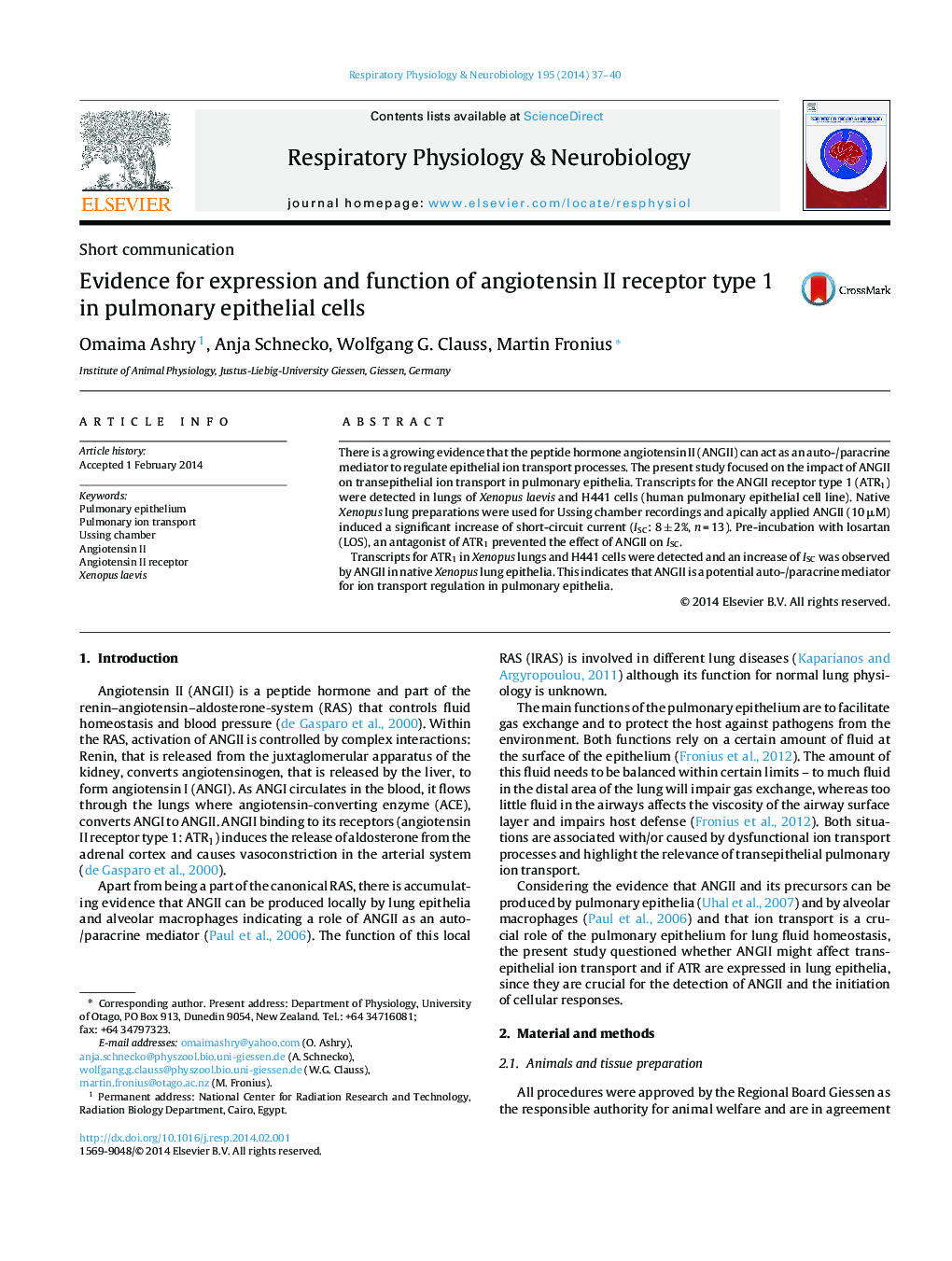| Article ID | Journal | Published Year | Pages | File Type |
|---|---|---|---|---|
| 2847062 | Respiratory Physiology & Neurobiology | 2014 | 4 Pages |
•Angiotensin II receptor type 1 is expressed in Xenopus lung and H441 cells.•Apical angiotensin II increases transepithelial short circuit current.•Losartan (angiotensin II receptor antagonist) prevented the effect of angiotensin II.•Indication for a role of angiotensin II as auto-/paracrine mediator.
There is a growing evidence that the peptide hormone angiotensin II (ANGII) can act as an auto-/paracrine mediator to regulate epithelial ion transport processes. The present study focused on the impact of ANGII on transepithelial ion transport in pulmonary epithelia. Transcripts for the ANGII receptor type 1 (ATR1) were detected in lungs of Xenopus laevis and H441 cells (human pulmonary epithelial cell line). Native Xenopus lung preparations were used for Ussing chamber recordings and apically applied ANGII (10 μM) induced a significant increase of short-circuit current (ISC: 8 ± 2%, n = 13). Pre-incubation with losartan (LOS), an antagonist of ATR1 prevented the effect of ANGII on ISC.Transcripts for ATR1 in Xenopus lungs and H441 cells were detected and an increase of ISC was observed by ANGII in native Xenopus lung epithelia. This indicates that ANGII is a potential auto-/paracrine mediator for ion transport regulation in pulmonary epithelia.
